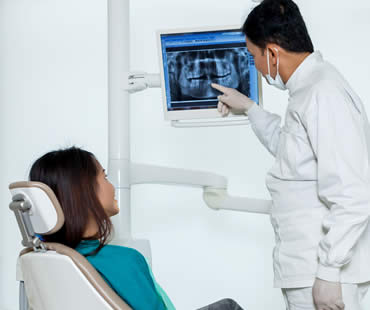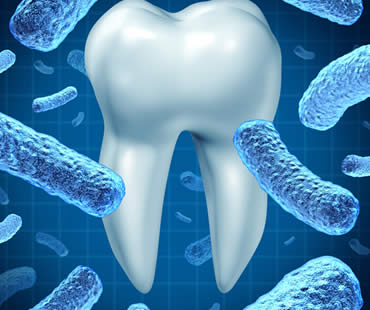
by Dr. Adkins | Feb 19, 2021 | Blog, Dental Topics 2, Dentures
You may expect you won’t need dentures because you take good care of your teeth. However, dentures are more prevalent than you may think. The number of adults in the United States needing dentures is expected to increase from 33 million in 1991 to 37 million in 2020. If you are wondering how likely you are to keep your teeth, here are some warning signs that may indicate dentures are in your future.
- You don’t visit your dentist twice a year for regular checkups and routine cleaning. Gum disease and tooth decay are the leading causes of tooth loss; therefore, it is critical to be proactive with dental care to prevent problems that could cause the need for extraction.
- You have gums that are swollen, tender, red, or bleeding which are indications of periodontal disease. Left untreated, gum disease is the primary cause of adult tooth loss.
- Your teeth have become loose, are shifting, or have developed wider gaps between them that can indicate bone loss from gum disease.
- You have severe tooth pain that could be a sign that decay has progressed and is attacking the nerve at the center of the tooth. Once tooth decay has advanced, it is more likely your tooth will need to be removed.
- You are already missing several of your teeth. If you are missing more than two teeth, it is important to replace them with some sort of prosthesis to keep pressure off of your remaining teeth.
- It is difficult for you to eat hard candy or chewy foods, which may indicate a cracked tooth, cavities, or gum disease.
- If you suffer from recurring stomach aches or indigestion, it may be a sign of dental problems. When you can’t chew properly, you end up swallowing larger pieces of food which is hard on your digestion.
Tooth loss does not happen overnight. With proper oral hygiene and regular dental visits, you may be able to avoid or delay the need for dentures in your future.
We look forward to seeing you in our McDonough dental office

by Dr. Adkins | Feb 12, 2021 | Blog, Dental Topics 2, General Dentistry
What is a dental bridge?
- Dental bridges make a bridge between two anchor teeth and are meant to fill a space left by a missing tooth. Teeth can be missing due to trauma, decay or some type of natural loss. Dental crowns cap the anchor teeth, giving the bridge stability and giving the replacement tooth the strength to function as a natural tooth.
What is a dental crown?
- Dental crowns are a restorative treatment meant to protect a tooth that has gone bad due to cracking, acute decay, or has received root canal therapy. A crown is crafted to fit in your mouth and to function exactly as your natural tooth would. They work by covering the damaged tooth entirely and can change the shape or alignment of the prior natural tooth.
Isn’t a dental crown the same thing as a dental cap?
- A dental cap and a dental crown are two different terms for the same thing.
What are dental crowns made of?
- Dental crowns can be made of 100% ceramic (porcelain), porcelain-fused-to-metal, or gold or other metal alloy, including zirconia. Metal alloy dental crowns are typically stronger and more suited for back teeth.
Do dental crowns look natural?
- Crowns made from porcelain or ceramic can be very natural looking. Many materials have excellent translucency, and mimic your natural teeth very well.
Is a dental bridge an option for me?
- Are you missing a tooth? Are your adjacent teeth healthy and stable? If so, dental bridge treatment may be right for you.
Are there options available to me other than dental bridges to replace missing teeth?
- The best alternative option to replace a missing tooth is a dental implant. Dental implants can restore one or more teeth by being placed directly into the jawbone, fusing securely over time.
If you’re considering moving forward to replace your missing tooth or teeth, discuss options with your cosmetic dentist. Get the answers you need to determine if dental crowns or dental bridges can help you reach your smile goals.
If you need a dentist in McDonough contact us today

by Dr. Adkins | Feb 5, 2021 | Blog, Dental Information, Dental Topics 2
Any stage of gum disease (or gingivitis) can cause inflammation, pain, and sensitivity. It can make eating and talking difficult. It’s important to know what causes gum disease and what can happen if it develops, so that you can avoid it altogether or at least catch it before it wreaks havoc on your mouth.
What causes gingivitis?
Plaque buildup is the main cause of gum disease, although other factors can lead to it as well. These include:
- Illnesses, especially those that interfere with your immune system. Patients with HIV, diabetes, and cancer are often at higher risk for gingivitis.
- Hormonal changes associated with pregnancy, menstruation, puberty, and menopause.
- Some medications affect oral health by decreasing saliva or causing abnormal growth of gum tissue.
- Smoking can hamper the healing of your gums.
- Poor dental hygiene, including neglecting brushing or flossing, or using improper techniques.
- Family history of gum disease.
What are the symptoms?
Gingivitis can sneak up without symptoms, even in the later stages of the disease. However, there are signs that may point to some level of gingivitis. These include bleeding, red, or swollen gums. Ongoing bad breath and receding gums are other symptoms. Deep pockets may form between the teeth and gums, and teeth may shift or loosen. You might also notice changes in how your teeth fit together when you bite down. Your dentist can recognize symptoms even if you don’t, so make sure you have checkups regularly.
How is gingivitis treated?
Treatment depends on the stage of your gum disease, how you responded to previous treatment, and your general health. Treatments range from therapies to control bacterial growth to surgery to restore gum tissue. Often gingivitis can be controlled with dental visits and good dental hygiene.
What can happen without treatment?
Gingivitis may advance to periodontitis, causing permanent damage to your mouth. Advanced gum disease has been linked to stroke, heart disease, rheumatoid arthritis, and diabetes complications.
Schedule your appointment at our McDonough dental office

by Dr. Adkins | Jan 29, 2021 | Blog, Dental Information, Dental Topics 2
The foods and drinks you consume affect more than your waistline. Your diet provides you with the nutrients you need and impacts your overall health, and also affects the health of your teeth and gums. Let’s see what the choices you make in your diet mean to your oral health.
Nutrients
If you don’t include certain nutrients in your diet, it’s harder for the tissues in your mouth to fight infection. This can promote gum disease, which can lead to tooth loss if not treated properly and early. Experts suggest that gum disease advances faster and can become more severe in people who don’t have a nutritious diet. Ask your doctor for suggestions for a healthy diet full of helpful nutrients.
Balanced diet
Your goal should be to eat a variety of foods from the five major food groups. These include whole grains, fruits, vegetables, lean protein, and low-fat dairy items. It’s also important to drink plenty of water.
Sugar
Sugary foods and drinks are enemies for your oral health, because sugar is proven to contribute to tooth decay. When plaque comes into contact with sugar in your mouth, it causes acid to attack your teeth and lead to decay. Limit the amount of sugar you consume by reading the nutritional labels on foods and drinks, and opt for items that are lowest in sugar. Soft drinks, candy, pastries, and cookies are common sources of sugar.
Snacking
Avoid snacking in between meals, and choose healthy foods like fruit or cheese when you do snack. When you eat foods as part of a meal, it is less harmful to your teeth than eating lots of snacks throughout the day. This is a result of more saliva being released during a meal, which helps wash food from your mouth and lessen the impact of harmful acids.
Dental care
Practice good oral hygiene like regular flossing and brushing with fluoride toothpaste, and visit your dentist regularly for checkups and cleanings.
Schedule your appointment at our McDonough dental office

by Dr. Adkins | Jan 22, 2021 | Blog, Dental Information, Dental Topics 2
Whether you call it pop, soda, soft drink, or something else, these terms all refer to a sugary, carbonated drink popular all over the country. It is estimated that Americans consume over 13 billion gallons of soft drinks each year. These beverages can cause serious health problems, including negative effects on your oral health.
Soft drinks are one of the most significant reasons for tooth decay, and it impacts all age groups. From babies drinking it out of bottles to teenagers drinking it all day long to older adults sipping it in retirement homes, it is deteriorating tooth enamel and eroding gums of everyone who consumes it.
Why are soft drinks harmful?
The high sugar content in the drinks is the root cause of trouble, and the high acid content adds to the threat. The sugar combines with bacteria in your mouth to create an acid, which adds to the acid from the drink itself. Then this mixture attacks your teeth. Each time you take a drink of the carbonated beverage, an acid attack begins in your mouth. During this time, your tooth enamel is weakened and cavities are just waiting to form. You may think that the risk goes away by drinking sugar-free soft drinks. Although these are less harmful, they are still acidic and can lead to decay.
How can I avoid harming my teeth?
The ideal way to rule out risks from soft drinks is to cut them out of your diet completely. If you think you just can’t live without them, here are some suggestions:
- Substitute other drinks. Try drinks with less sugar, like 100% fruit juice and milk.
- Set a good example. Drink alternatives yourself and encourage your kids to do the same.
- Sip with straws. This helps keep the sugar from direct contact with your teeth.
- Rinse with water. After drinking a soda, rinse your mouth with water to reduce the amount of sugar and acid hanging onto your teeth and gums.
- Use fluoride toothpaste and mouth rinse. Using fluoride in your daily dental routine helps to reduce decay and strengthen enamel. Also ask your dentist about the possible need for professional fluoride treatments.
Schedule your appointment at our McDonough dental office

by Dr. Adkins | Jan 15, 2021 | Blog, Dental Information, Dental Topics 2
Tooth pain can be one of the most uncomfortable types of pain there is. It can make your whole jaw and head ache, interfere with eating, and cause your teeth to be more sensitive. One common reason for a toothache is your wisdom teeth, which are the molars in the very back of your mouth that develop last. Sometimes they don’t even erupt, but they can still be there under your gums causing trouble. If you experience pain related to wisdom teeth, here are some suggestions.
Make an appointment to see your dentist as soon as possible. This way you can find out for sure if your wisdom teeth are to blame for your pain, and decide the best treatment plan for your situation. A dentist examination, which may include x-rays, is the best way to determine exactly what’s going on with your teeth. You may not even be able to see your wisdom teeth, but they might be growing improperly under your gums. Often, wisdom teeth need to be extracted to avoid continued pain or worsening condition. Luckily, wisdom teeth extraction is a common procedure that your dentist or oral surgeon is very familiar with, and can provide you with great treatment that will end up relieving your pain.
While waiting for your dental appointment, try applying an over-the-counter numbing gel such as Oragel. This may help relieve your pain at least for a short time. Also, taking non-prescription pain medicines should help. Acetaminophen and ibuprofen are both good choices to try, especially to subdue the pain when you want to sleep.
Remember that prevention is often the best way to avoid dental pain. Brush your teeth at least twice a day, and floss every day. See your dentist regularly for checkups, because problems with wisdom teeth can sometimes be spotted before you ever begin to feel any pain associated with them. This allows you to deal with the problem before you have to endure a toothache.
If you live in the McDonough area contact us today








 (470) 665-5292
(470) 665-5292  E-Mail Us
E-Mail Us 
